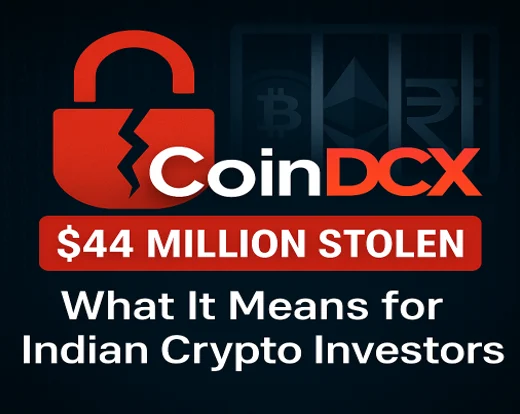
EU Finance Ministers Unanimously Approve Groundbreaking Rules to Regulate Cryptoassets, Paving the Way for Investor Protection and Combating Illicit Activities.
Brussels, Tuesday— In a groundbreaking move, the European Union (EU) has given its final nod to the world’s first comprehensive set of regulations aimed at governing cryptoassets. The approval by EU finance ministers during their meeting in Brussels not only marks a significant milestone for the EU but also intensifies the pressure on countries like Britain and the United States to catch up and establish similar regulatory frameworks.
Unanimous Approval for Pathbreaking Rules
After extensive negotiations with the European Parliament, which granted its approval in April, EU finance ministers have endorsed the rules, which are expected to be rolled out gradually starting in 2024. The urgency to regulate the crypto industry has become increasingly evident following the collapse of crypto exchange FTX.
Protecting Investors and Combating Misuse
Elisabeth Svantesson, the finance minister for Sweden and the holder of the EU presidency, stressed the vital importance of these regulations in safeguarding European investors and preventing the exploitation of cryptoassets for illicit purposes. She emphasized, “Recent events have confirmed the urgent need for imposing rules which will better protect Europeans who have invested in these assets and prevent the misuse of the crypto industry for the purposes of money laundering and financing of terrorism.”
License Requirement for Crypto Firms
Under the newly approved rules, companies operating within the 27-country EU bloc will be obligated to obtain a license if they wish to issue, trade, or safeguard cryptoassets, tokenized assets, and stablecoins. This licensing requirement aims to enhance transparency and accountability within the crypto sector while ensuring the protection of investors’ interests.
Combatting Tax Evasion and Money Laundering
In an effort to combat tax evasion and the use of cryptoasset transfers for money laundering, EU finance ministers have taken measures to streamline the traceability of transactions. Starting from January 2026, service providers will be required to collect information about the senders and beneficiaries of cryptoasset transfers, regardless of the amount being transferred. This move aims to enhance financial transparency and increase the effectiveness of anti-money laundering efforts across the EU.
Strengthening Tax Cooperation and Exchange of Information
In addition to addressing tax evasion, the EU has agreed to amend the rules on member countries’ cooperation in taxation to encompass transactions involving cryptoassets. Furthermore, the EU will facilitate the exchange of information on advance tax rulings for high-net-worth individuals. These measures are designed to ensure greater tax compliance and prevent abuse of the crypto industry for illicit financial activities.
Global Implications and Regulatory Certainty
The introduction of comprehensive regulations within the EU has created a sense of urgency for other countries to adopt similar frameworks. Crypto firms have expressed the need for regulatory certainty, placing further pressure on nations to replicate the EU’s rules and urging regulators to establish global norms for cross-border crypto activities.
While Britain has outlined a phased approach to regulation, beginning with stablecoins and expanding to include un-backed cryptoassets, a concrete timetable has yet to be provided. Meanwhile, the United States has primarily relied on existing securities regulations for enforcement in the crypto sector, while deliberating the potential introduction of bespoke rules and identifying the relevant regulatory bodies.
Navigating the Uncertainties
Hester Peirce, a commissioner at the U.S. derivatives regulator CFTC, acknowledged the prevailing uncertainty surrounding crypto regulation in the United States. Speaking at a recent conference, Peirce remarked, “We are wandering in the desert a bit,” shedding light on ongoing efforts by federal and state authorities to determine their oversight roles in the rapidly evolving crypto industry.
A New Era of Regulation Begins
As the EU takes the lead in comprehensive cryptoasset regulations, the world awaits further developments and potential convergence toward standardized norms for cross-border crypto activities. This historic decision highlights the EU’s commitment to protecting investors, ensuring financial transparency, and combating illicit activities within the crypto industry, setting a precedent for other nations to follow suit.
Conclusion:
The European Union’s groundbreaking approval of the world’s first comprehensive set of rules to regulate cryptoassets represents a significant milestone in the global crypto landscape. By prioritizing investor protection, combating money laundering, and enhancing financial transparency, the EU has set a new standard for responsible crypto regulation.
This move puts pressure on other nations, such as Britain and the United States, to catch up and establish their own regulatory frameworks. As the crypto industry continues to evolve, the need for regulatory certainty and global norms becomes increasingly important. The EU’s decisive action serves as a catalyst for further discussions and collaboration toward creating a secure and transparent environment for cryptoasset activities worldwide.
Disclaimer
The information presented in this Blogpost is solely for educational and informative purposes and should not be misconstrued as investment, financial or legal advice. Cryptocurrencies are a highly unstable and speculative market and their worth is susceptible to substantial fluctuations. Therefore, it is advisable to conduct personal research and seek counsel from qualified experts before making any financial decisions.







